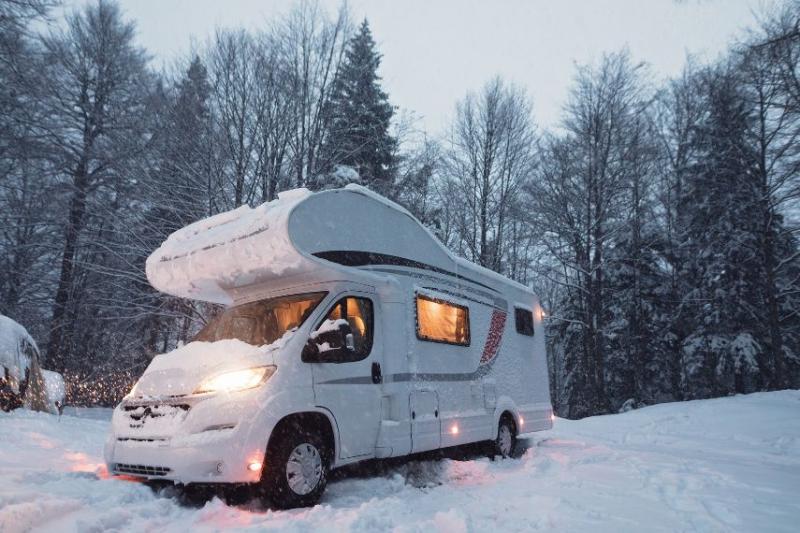
Whether you park up your campervan for winter or continue to enjoy life on the road, it’s important you prepare your van for winter.
Here’s our guide on how to get your campervan or motorhome winter ready, plus some security tips.
How to drive your campervan safely in winter
If you plan to keep your campervan or motorhome on the road, it’s a good idea to refresh your memory on how to drive safely in winter conditions.
Here’s a few things to remember:
- Leave more time for journeys.
- Keep your campervan well-stocked with essentials like de-icer, windscreen wash, and blankets.
- Double or treble your braking distances in severe weather – especially in larger, heavier vans.
Make sure your campervan insurance and breakdown cover are up to date and that you have the relevant contact details to hand in case of a winter emergency.
Preparing your campervan for winter
Like all cars and vans, it’s worth doing a bit of a health check before the cold sets in. This includes things like checking your tyres, lights and brakes.
You should also carry out some basic maintenance checks before each trip, including checking:
- oil
- water and screen wash levels
- tyre pressure
For more information, read our guide on winter car health checks.
Insulating your van
Another key part of preparing your campervan for winter is making sure it’s insulated properly.
You can invest in things like thermal window blinds, reflective foil mats, as well as considering doing some proper insulation to your walls and floors.
Read our guide on insulating your van for winter to find out more about preparing your motorhome for winter.
Plus, if you’re still feeling the cold, consider a portable blow heater or maybe a gas heater. If you’re going to use gas, make sure you check that it’s safe to use inside.
Plus, you should fit a carbon monoxide detector and always turn the gas off when travelling.
Storing your campervan for winter
If you exclusively use your campervan for summer trips and beach days, you might want to put your van to bed for winter.
There are a few things to do before you store your campervan:
- Wash your van and apply some wax – this will protect it from the frost.
- Empty all your cupboards and fridge – it's a good idea to clean out all these areas thoroughly and prop the fridge door open to stop mould growing.
- Protect against mildew – place some moisture-absorbing crystals or a dehumidifier in your van to stop the build-up of mildew over winter.
- Cover external vents – this will stop mice and any creepy crawlies from getting inside.
- Drain the water – this includes the water tank, any heaters, and waste water.
- Remove gas bottles – you should store these safely in the garage or shed.
Finally, make sure your campervan is nice and covered up. Ideally, you’d park it in a garage but if not, choose a cover to stop any build-up of dirt and leaves.
Make sure it’s a breathable fabric to stop condensation or mildew. If you’re using a heavy-duty tarpaulin, prop it on a raised structure over your van to maintain space between the tarp and bodywork.
Winter security for your campervan
If your campervan isn’t kept in a locked garage over winter, there’s a few safety measures you should take to protect it:
- Draw the curtains – if your campervan isn’t parked in a locked garage, draw the curtains or thermal blinds to stop thieves from looking inside.
- Remove your valuables – take any expensive items out of the campervan and store them in your house.
- Consider security gadgets – you could look into things like alarms, wheel clamps and tracking systems to give you extra peace of mind.
Declaring your van off the road
If your campervan is stored away for months at a stretch, you can legally declare it off the road with a statutory off-road notification (SORN).
With a SORN, you don’t need insurance, road tax or a valid MOT certificate.
However, there’s still the risk your van could be stolen or damaged while parked up on your drive or in the garage, so it’s a good idea to keep your van insured.


